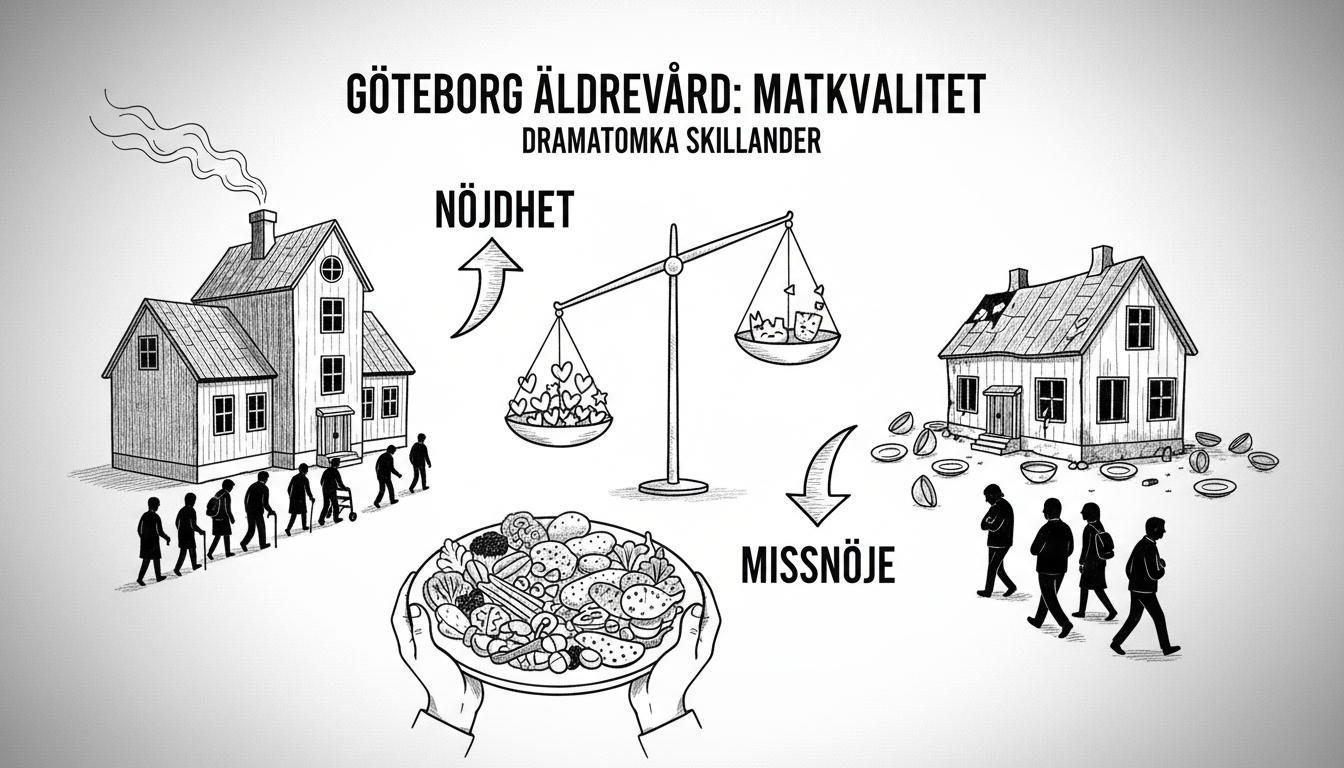A major investigation reveals dramatic differences in food satisfaction across Gothenburg's elderly care facilities. Residents themselves rated meal quality at their care homes, with results showing stark contrasts between institutions.
At some facilities, nearly all residents report enjoying their meals. Other locations face widespread dissatisfaction with food services. The survey highlights significant quality disparities within the same municipal system.
Sara Karlsson, operations manager for meals in Gothenburg, responded to the findings. She stated her goal is to improve conditions across all facilities. Karlsson acknowledged the need for better consistency in food quality.
This situation reflects broader challenges in Sweden's elderly care system. Municipalities face increasing pressure as the population ages. Food quality represents just one aspect of care quality that families monitor closely.
Sweden's elderly care system operates primarily through local municipalities. Each municipality manages its own care facilities and sets quality standards. Gothenburg, as Sweden's second-largest city, operates numerous care homes serving thousands of elderly residents.
The survey results matter for several reasons. Food quality directly impacts residents' quality of life and nutritional health. Dissatisfaction with meals can indicate deeper management issues within care facilities. Families considering care options often use such ratings when making difficult decisions.
What explains the dramatic differences between facilities? Management priorities, staff training, and budget allocations all play roles. Some care homes may prioritize food quality more than others. Kitchen staff expertise and ingredient sourcing also vary significantly.
International readers should understand Sweden's context. The country maintains a strong social welfare system, but local implementation varies. Elderly care represents a major public expenditure and political priority. Recent years have seen debates about privatization versus public management of care services.
The timing of this survey coincides with national discussions about care quality standards. Sweden faces challenges common to many developed nations. An aging population increases demand for elderly care services while workforce shortages create pressure.
What happens next? Municipal officials will likely review operations at lower-performing facilities. Better-performing homes may serve as models for improvement. The public nature of these ratings creates accountability pressure for care administrators.
For expatriates with elderly relatives in Swedish care, these findings highlight the importance of facility research. Food quality ratings provide tangible indicators of overall care standards. The variations between institutions suggest that location choice matters significantly.
The situation in Gothenburg mirrors patterns seen in other Swedish cities. Previous studies in Stockholm and Malmö showed similar disparities between care facilities. This suggests systemic rather than isolated challenges in municipal elderly care services.

